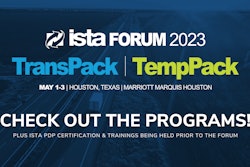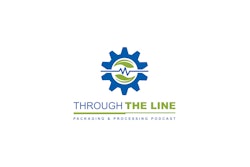The healthcare supply chain is at a critical inflection point, with fewer than 300 days left to comply with the 2013 Drug Supply Chain Security Act (DSCSA). By November 27, 2023, trading partners will be required to add serialized pharmaceutical product data to the transaction information already provided when a DSCSA-covered product changes ownership.
Once fully implemented, data movement within the pharmaceutical supply chain will be completely transformed, providing additional assurance to Americans that the medicines they pick up at the pharmacy counter are safe and legitimate. However, connecting to trading partners via GS1 Electronic Product Code Information Services (EPCIS) to share serialized item-level data can be a complex and challenging process between product manufacturers and distributors.
While dispenser readiness, labeling issues, and outstanding FDA guidance certainly are challenges, significant gaps between manufacturers and distributors should be addressed immediately in this final stretch of DSCSA implementation. Given the data-related issues that exist today, there is the distinct possibility that significant supply chain disruptions—and even product shortages—could occur after November 27.
Much progress has been made, but there is much more to do. In comments submitted in early February to the U.S. Food and Drug Administration (FDA), the Healthcare Distribution Alliance (HDA), the national association representing the pharmaceutical distribution industry, flagged several urgent issues while making recommendations to the agency to help keep the supply chain on track for compliance.
Connecting is happening—but slowly
Surveys conducted by HDA and the HDA Research Foundation illustrate supply chain trading partners’ implementation progress and perceived challenges among manufacturers and distributors.
According to the Foundation’s Serialization Readiness Survey, conducted in June 2022, manufacturers continue to delay their implementation work well into 2023. At that time, only 32% of the 48 responding manufacturers—a small proportion of all DSCSA-covered product manufacturers—reported the ability to send serialized data to their distributor trading partners, with the majority, 66%, planning to do so by the November 2023 deadline.
Meanwhile, while 62% of the 29 healthcare distributors responding to the survey reported the ability to receive serialized product, nearly half of them indicated manufacturer suppliers were not yet providing data for total product lines as the compliance deadline nears. Additionally, many reported continuing challenges with receiving master data from their trading partners. On one point, however, manufacturers and distributors agreed: “collaboration with trading partners” was cited as the top obstacle to compliance.
However, there is positive news coming out of HDA’s latest EPCIS Implementation Benchmarking Survey (Third Quarter, 2022). In that survey, 45 manufacturers reported 1,584 planned connections to distributors and 51% of those being either “in process” or “completed.” A reported lack of employee resources continues to challenge the segment. Distributors noted similar progress: the number of their “in process” or “completed” connections to manufacturers grew from 17 to 22% for small, mid-sized suppliers, and from 29 to 56% for large suppliers.
Staying the course on implementation
While HDA is pleased to see the progress under way as of the third quarter of 2022, our distributor-member companies continue to report that the supply chain is not where it should be given the long runway required for onboarding and working through data challenges. Indeed, in our comments to FDA, HDA noted that, “Setting up the EPCIS connection with a manufacturer can take weeks, or even months. With so many manufacturers waiting—and all wanting to be onboarded last—there is not going to be enough time to secure all necessary connections by [the deadline].”
Given the interconnected nature of the supply chain, distributors are highly dependent on receiving complete and accurate serialized data from manufacturers to facilitate compliance with the DSCSA, and the industry cannot delay connections any longer. That is why HDA urged FDA to avoid exercising broad enforcement discretion for manufacturers and repackagers’ DSCSA requirements and provide exemptions for companies on a case-by-case basis—which will be less disruptive and likely less expensive for the supply chain.
Stabilization period needed
Under the DSCSA, a distributor cannot accept or sell a product beginning on November 27, 2023, if that product does not have transaction information with the product identifier in an electronic file that meets DSCSA requirements (effectively, meaning in an EPCIS event file). But the transition from sending lot-level to item-level data in this format is complex, and the law doesn’t provide flexibility in how data and file-related issues—that is, errors and exceptions—should be resolved. As much as 35% of products could be affected by these issues. HDA developed recommended guidelines to address some of these exception scenarios as well as held a February workshop on this topic, in partnership with GS1 and the Partnership for DSCSA Governance.
Without a means to address these exceptions, distributors will be unable to sell the product to dispensers. Simply put, hundreds of thousands of drug packages would be kept out of distribution, leading to significant burdens on industry as well as potential drug shortages for patients.
The supply chain will likely need flexibility as the industry transitions to sharing item-level data in a production environment on November 27. To this end, HDA requested that FDA institute a period for trading partners to fine-tune and stabilize processes, similar to how the agency addressed grandfathering product without product identifiers in an earlier phase of implementation.
All hands on deck
From the advocacy stages to implementation, DSCSA has been a highly collaborative, team effort at HDA, as we continue to serve as a forum for stakeholders to work through key issues. From a distribution perspective, the industry has devoted enormous time and resources over nearly 10 years to make interoperable product data exchange a reality, and HDA members will continue to move full speed ahead toward compliance. We call on our manufacturer trading partners to communicate their plans for fulfilling their responsibilities under the DSCSA and continue to work alongside us to achieve the enhanced supply chain security that Congress envisioned in enacting the DSCSA.
The road ahead may be difficult, but now is the time for industry stakeholders to keep the momentum going as we realize the incredible transformation that has taken nearly a decade to build—and unlock a new era of data management within the pharmaceutical supply chain.
Additional resources are available at HDA.org/pharmaceutical-traceability.
—Anita T. Ducca, Senior Vice President, Regulatory Affairs, Healthcare Distribution Alliance; Elizabeth A. Gallenagh, General Counsel and Senior Vice President, Supply Chain Integrity, Healthcare Distribution Alliance


























